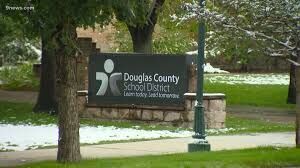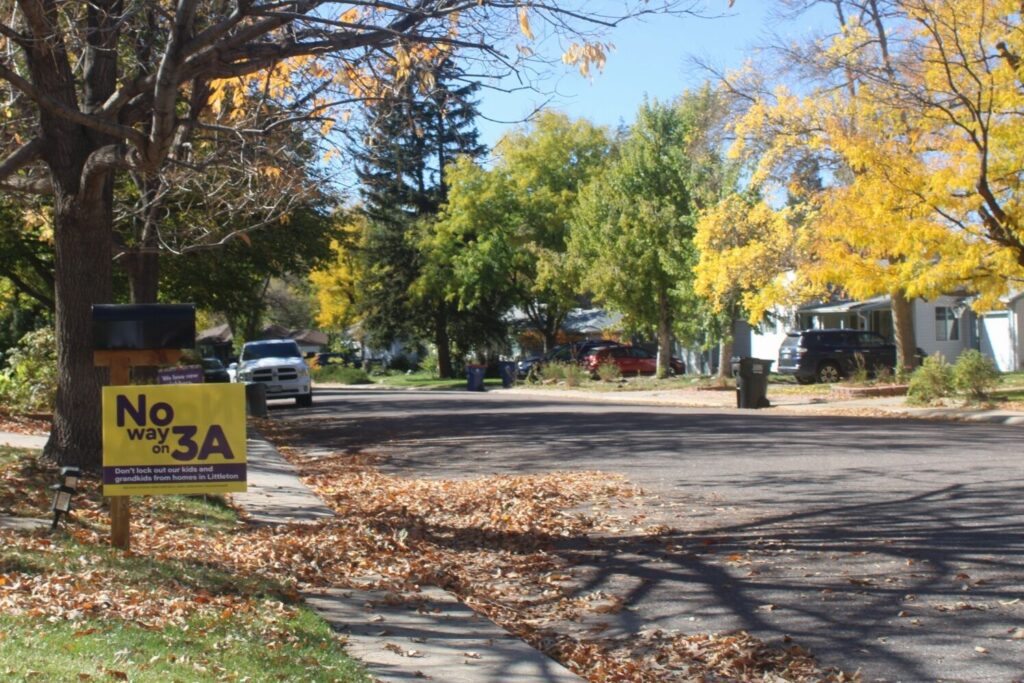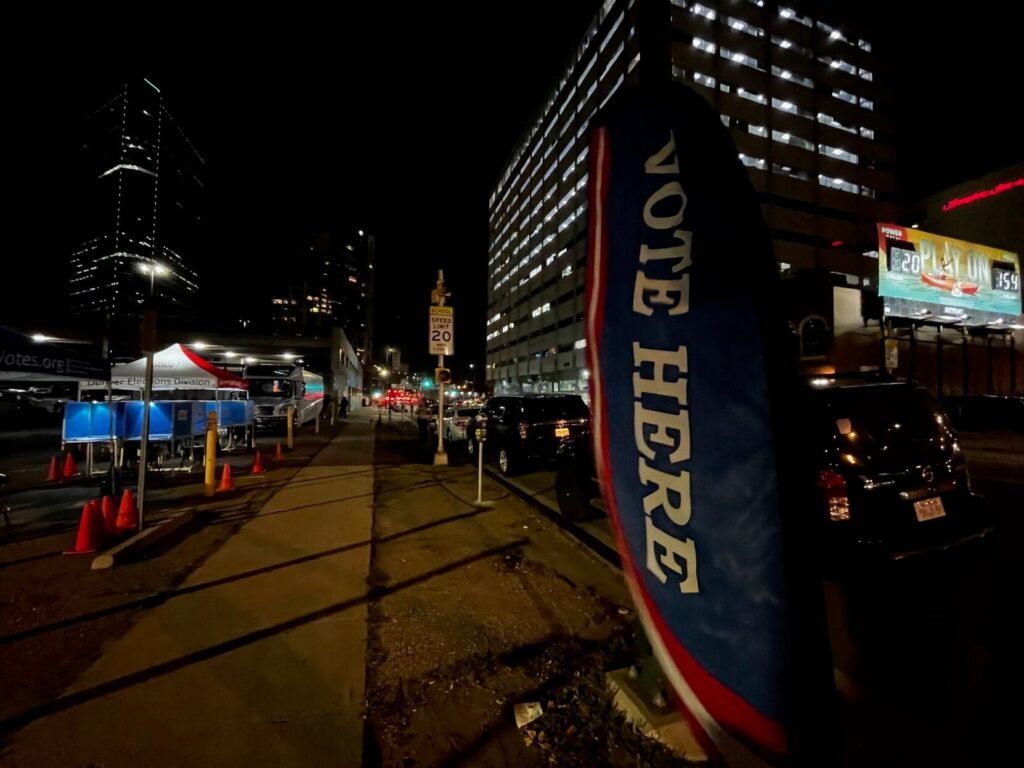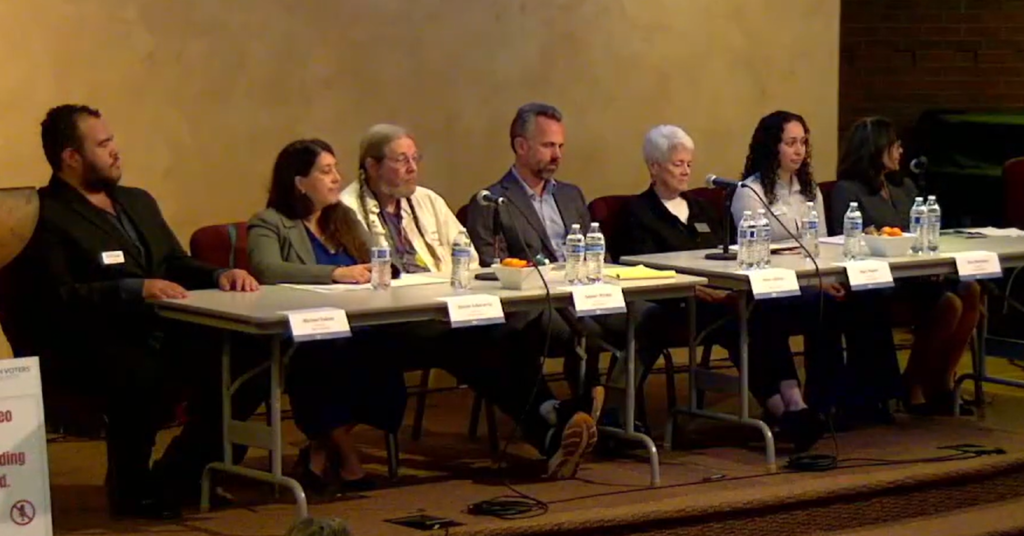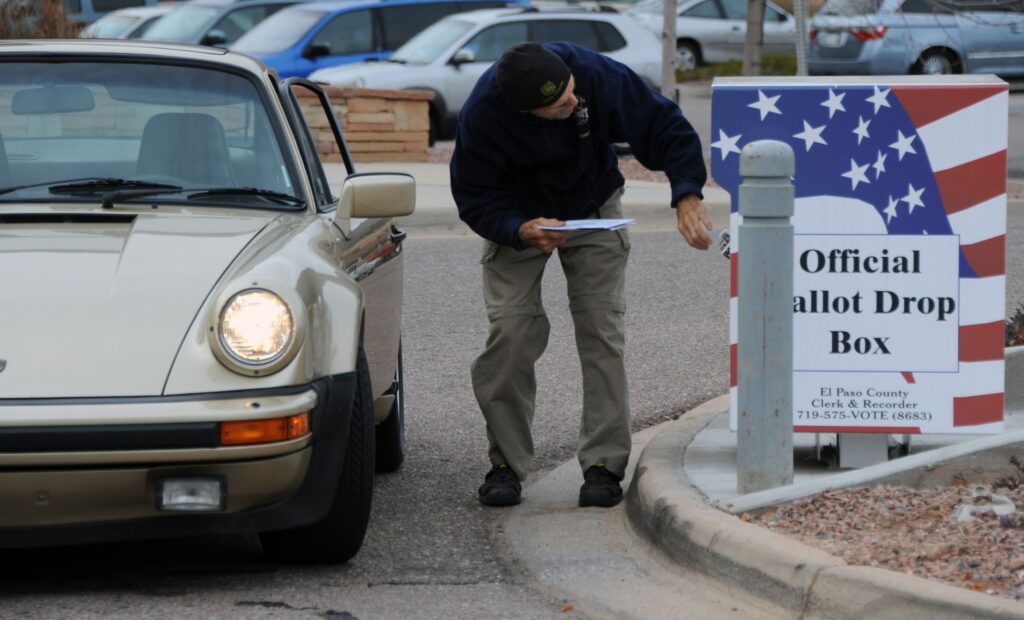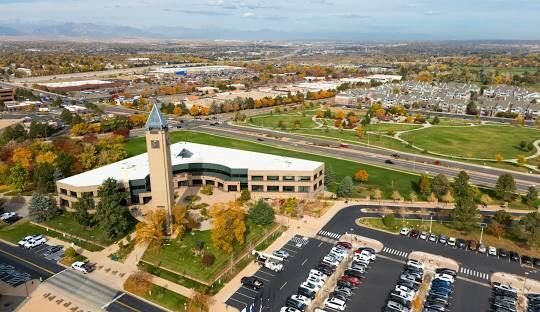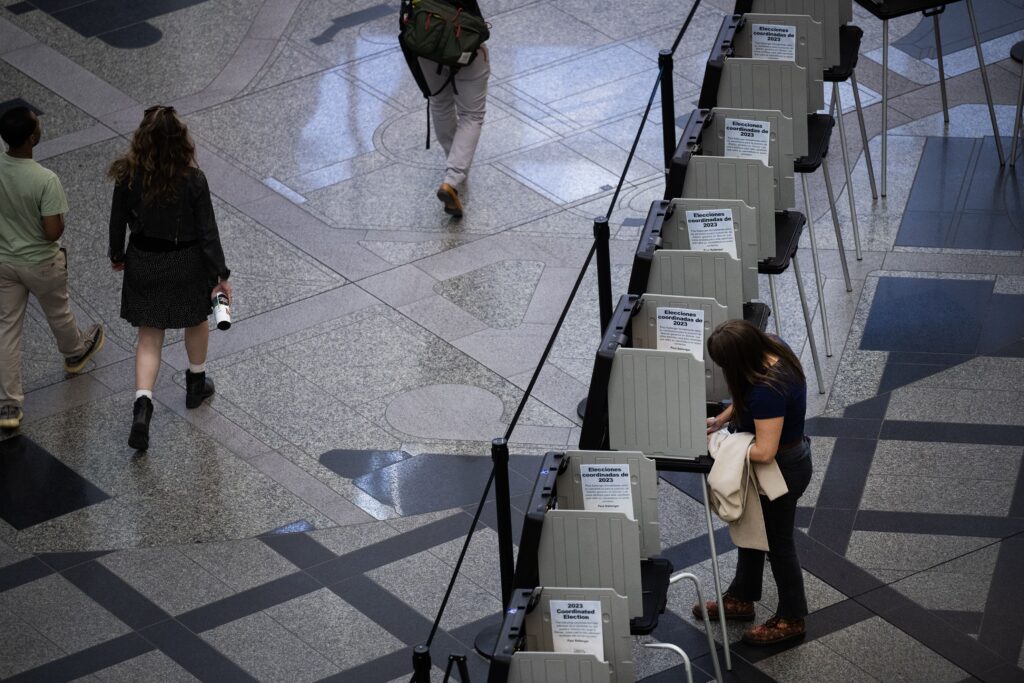Rank choice voting debuts in Fort Collins
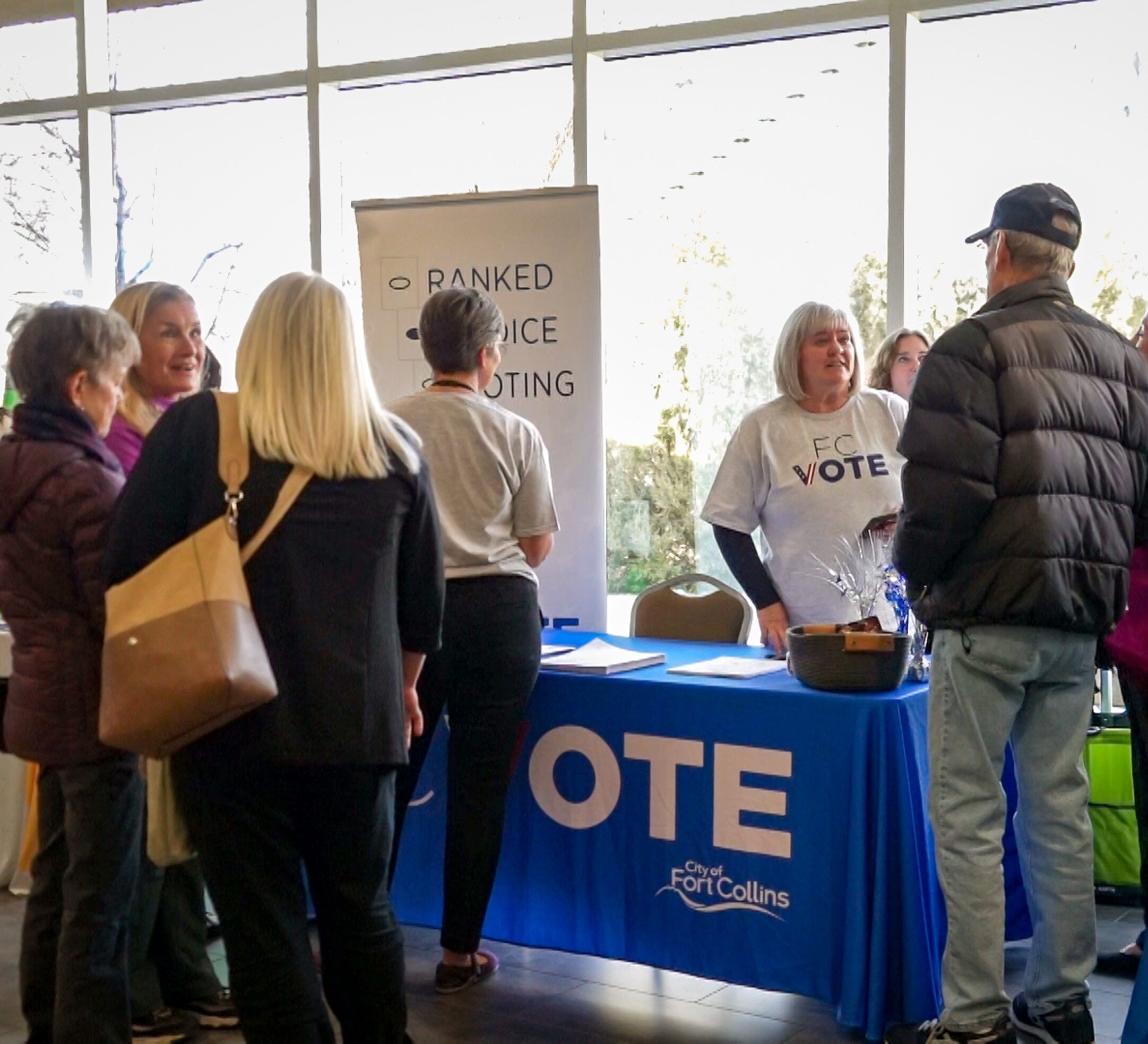
FORT COLLINS – There isn’t much Delynn Coldiron has not seen or done in her 30+ year career working as a city government employee — that is, perhaps, until this year.
The Fort Collins City Clerk and her staff have been out in force, on the move and making more public appearances than she can ever recall.
By the time her mid-October Friday ends, Coldiron will have done a radio spot, a media interview, and a presentation for the Fort Collins Chamber of Commerce in a span of less than 24 hours.
Keeping up appearances as a city official is expected. Still, it forces one to ask: Why so busy?
“City clerks don’t usually go out and do events, but we geared up and have been doing all kinds of community events — everything from farmer’s markets to podcasts to concerts,” Coldiron said. “We are doing everything we can to just get the word out and educate the community about ranked voting and the ballot measures.”
Ranked voting is making its debut in Fort Collins, and it will be used to decide what many anticipate to be a highly contested mayoral race and two city council elections on Election Day Tuesday.
It is a voting practice commonly referred to as ranked-choice voting, and it is unique to Colorado. Not many towns or cities have instituted it or are set up to use it.
According to the Ranked Choice Voting Resource Center, Fort Collins is the only city in Colorado to have ranked voting in play for both mayoral and city council races with three or more candidates. It will be coming to Broomfield in 2027.
The website also notes that Boulder, Basalt, and Carbondale are set up to use ranked voting to determine mayoral elections.
“It’s a little unique to Colorado, but it’s used across the world in more than 120 countries,” Coldiron said. “Alaska uses it statewide. It depends on the jurisdiction and how they want to implement it, but about 14 million voters within the United States have access and use ranked voting at this point.”
Fort Collins voters elected to use ranked voting in a 2022 ballot measure, which was a council-referred item. It passed with 58.15 percent support.
City residents will be able to rank candidates in order of preference, which includes ordering those running for mayor of Fort Collins one through seven.
Yes, seven candidates for mayor, along with three city council candidates each in Districts 1 and 3.
Fort Collins has six districts, and the District 5 race will be between two candidates, so ranked voting will not be in effect. City voters will vote on the even-numbered districts in 2027.
How does it work?
Here’s the catch, and possibly some of what confuses people, from early-morning coffee talk at the gym to random political conversation during an evening out in Old Town about ranked voting in Fort Collins.
The process works as an elimination algorithm of sorts.
While voters can opt to vote for just one candidate, the idea behind ranked voting is to rank candidates in order of preference, so that they can potentially be redistributed if needed.
The votes are tallied based on each voter’s first choice. If one candidate gets a majority, they win outright.
However, if no candidate gets a majority in races with three or more candidates, the contenders with the fewest votes are eliminated in subsequent rounds.
Votes are then redistributed to the next highest-ranked candidate on voters’ ballots. The process continues until one candidate receives the majority.
This year, for the first time, the City of Fort Collins published a Voter Information Guide as a resource to get voters better acquainted with the ranked voting process.
The Voter Information Guide also includes the full text of the 10 Fort Collins ballot measures, as well as a factual summary, what “yes” and “no” votes mean, and a summarized list of pro and con statements for each item.
A loaded field
As ranked voting debuts in Fort Collins, taking center stage will be the seven-candidate mayoral race.
Three of the candidates running are either on the City Council or have previously held a city council seat.
Current Fort Collins Mayor Jeni Arndt chose not to run for reelection after serving two consecutive two-year terms as the city’s mayor.
District 6 City Councilmember Emily Franics is one of the mayoral candidate and the current mayor pro tem. She grew up in Fort Collins, attended Colorado State University and has served on the City Council since 2019.
“I grew up pretty low-income, so I always say that Fort Collins had a big hand in raising me,” Francis said. “It was a smaller town back then with a strong community. It still is a strong community.”
Francis noted, however, that Fort Collins has become increasingly too expensive to live in due to inflated housing costs and a lack of economic opportunity for many.
She said Fort Collins is not keeping up with livable wage-paying jobs and employment opportunities for people to stay in the community.
“Affordability and housing are huge,” Francis said. “Our population has been stagnant for the past few years, but the demographics have shifted — it’s shifting to an older community because we’re having fewer families here and more people not being able to stay here. We have over 32,000 people driving into Fort Collins to work every day. That’s massive. Many of the people who are serving our community are not living here. This is affecting the health of our community.”
Tricia Canonico is another mayoral candidate and City Council representative for District 3 who also believes affordability is a major issue facing Fort Collins.
“I really think affordability is the center of every issue that we need to work on,” Canonico said. “Young families can’t afford to live here, so now we’re going to have to have some choices made with schools. I don’t know what that’s going to look like, but when we don’t have young families and children in schools, something’s going to have to give at some point. It’s also those young families that are supporting our sales tax.”
The Common Sense Institute noted that between 2015-2023, the cost of purchasing a home in Fort Collins has nearly doubled. In May, the median sale price for a home in Fort Collins was $572,876. The Institute bills itself a “non-partisan research organization dedicated to the protection and promotion of our economy,” according to its website.
Canonico describes her political views as “progressive to centerist.” She is well endorsed with support from the Larimer County Commissioner and the Boulder Mayor, among others.
One thing that might set Canonico apart from other candidates is that before moving to Fort Collins in 2010, she had previously moved more than 20 times, with many of those attributed to her growing up in a military family.
“I’ve moved 24 times, so I’ve had the opportunity to live in thriving communities and dying mill towns,” Canonico said. “If you’re not growing per se, you’re dying, and those are not communities anybody really wants to be in. I want to keep Fort Collins driving and moving forward.”
Shirley Peel, another candidate for mayor with experience on the City Council, represented District 4 from 2021-2024 and is on the Fort Collins Planning and Zoning Commission.
Peel’s campaign for mayor is different than when she ran for City Council in 2021 and 2023. This time around, Peel is not seeking endorsements.
“It’s something that’s actually been a conviction of mine, and I think I just finally had the courage to act on it,” said Peel, who has lived in Fort Collins for 25 years. “My personal goal is to build bridges. I know everybody says that, but I really mean it. There’s so much division at both the federal and state levels. I believe that local government is the place where you can build bridges and relationships.”
Peel believes that one bridge that needs mending is supporting local businesses.
“One of the things we need to have is responsible spending and a strong economy,” Peel said. “To do that, we need to focus on local businesses because we have got to create an environment for them to succeed — that’s where most of our tax revenue comes from. I think we need to look at our regulations, and we need to look at our fee schedule.”
Four others are also running for mayor of Fort Collins. They are Adam Eggleston, Adam Hirschhorn, Jeffrey Shumway and Scott “Scotty V” VanTatenhove.
Though none of the four have the city government experience of Francis, Canonico or Peel, Eggleston could emerge as a wild card in the race.
Like Francis, Eggleston has strong ties to the community. He also grew up in Fort Collins and graduated from CSU.
The former Realtor of the Year for Fort Collins Board of Realtors in 2023 became involved in city governance about a decade ago.
He has worked on policies related to land use, occupancy limits, building defect regulations, capital improvement fees, and parking strategies.
“I’ve been working on policy for a long time, and the current direction this city is going is not sustainable,” Eggleston said. “Our affordable housing index is getting worse, not better.”
As for ranked voting, Eggleston and other candidates believe it has led to more civility and potentially dilutes the influence of political parties.
“I think ranked voting provides more of an opportunity to run towards the center, not the extremes,” Eggleston said. “You also have to try and run for the number 2 and number 3 votes, so it gets candidates out of silos. I also think it allows the elector to have more of a voice in the race.”






